Abstract
Subjective health status was assessed in relation to overweight by administering a list of 51 health complaints to adult men and women who were either chronically overweight as defined by Body Mass Index (BMI) or not overweight, in a continuous morbidity registration in four general practices during the period 1967-83. Responses were received from 455 men (182 overweight) and 790 women (386 overweight), ages 26-66 years. Response rate (71 per cent) and age distribution (mean age 48) were similar in overweight and non-overweight groups of both sexes. BMI was correlated with the total number of complaints in women (r = 0.15) but not in men (r = 0.07). Multiple regression analysis revealed, however, that age was an effect modifier in this relation, there being a negative association between BMI and subjective health in younger men and a positive association in older men, whereas in women the association between BMI and subjective health was much more pronounced at younger ages than at older ages. In addition, current smoking habits and social class (in men and women) and reported slimming behavior (in women) had an independent relation to the total number of health complaints. BMI was also related to specific complaints and groups of complaints, particularly in women.
Full text
PDF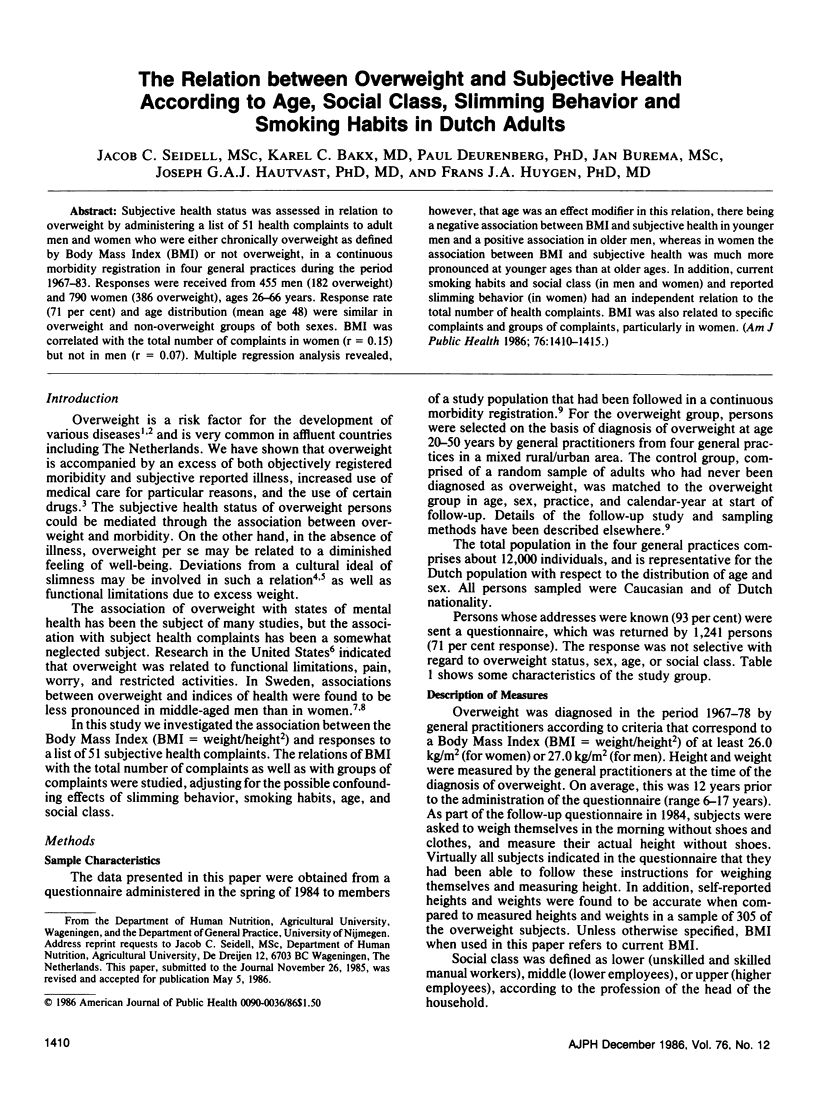
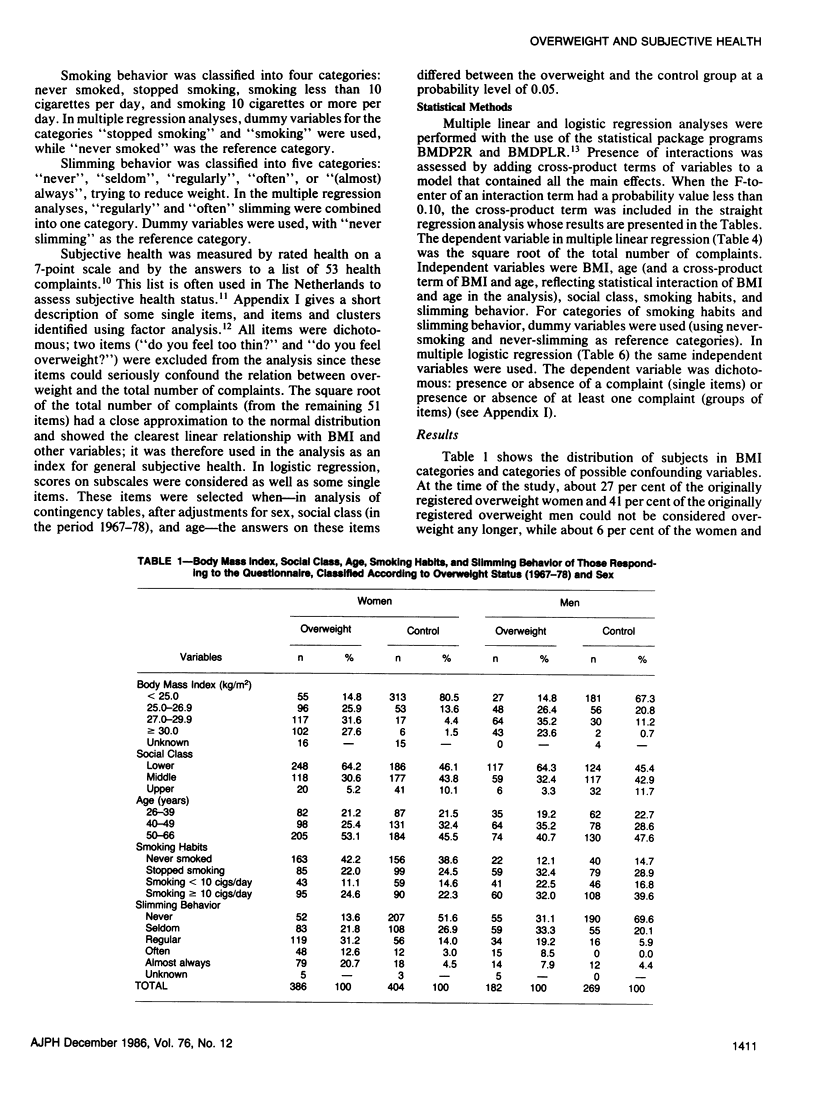
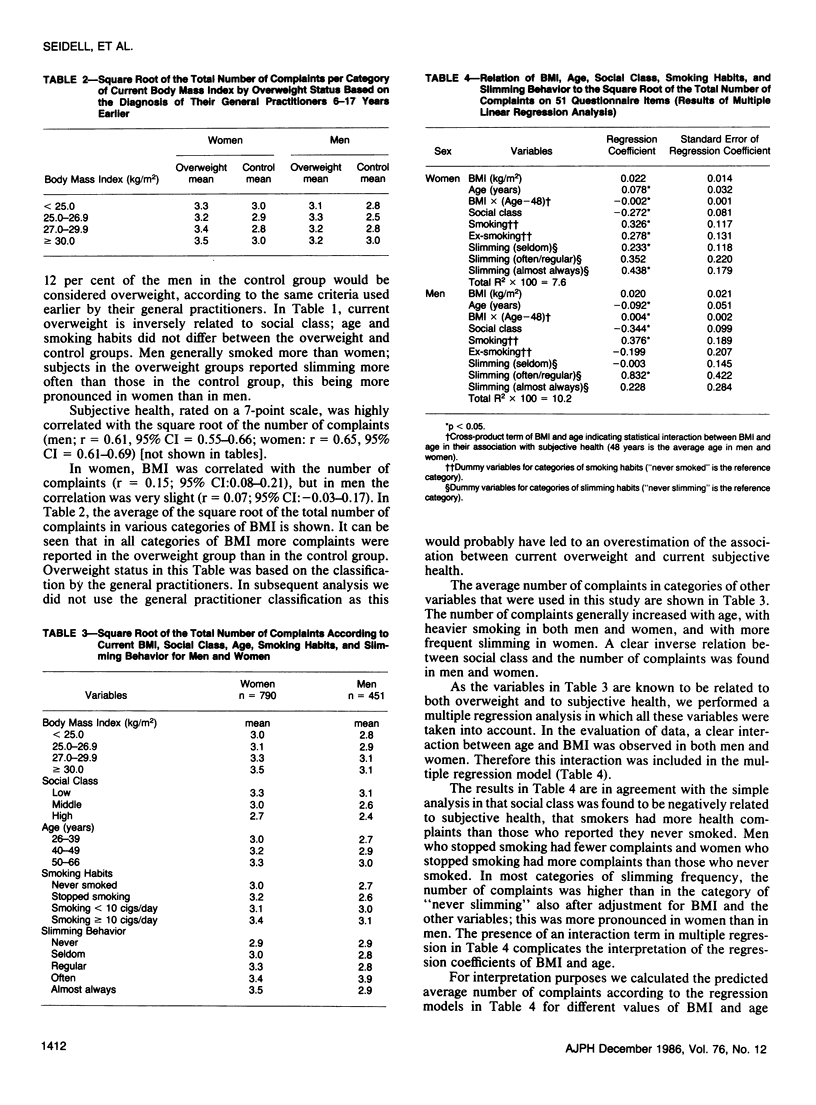
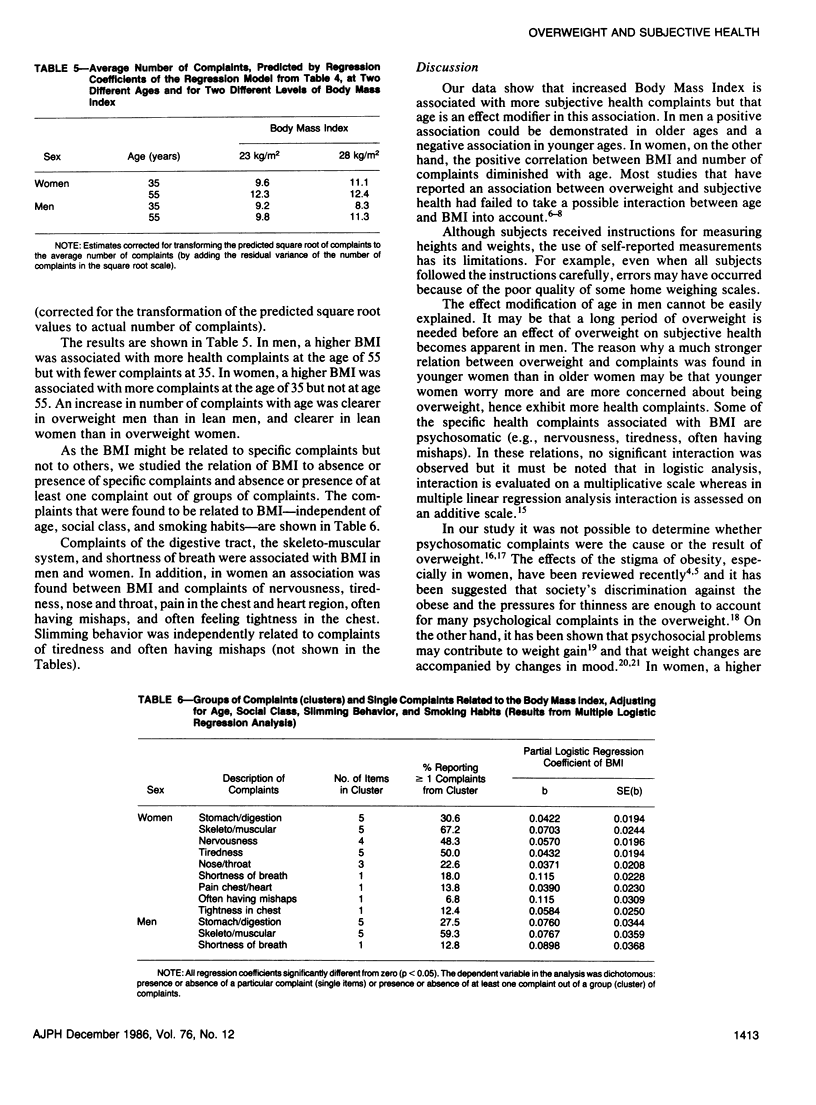
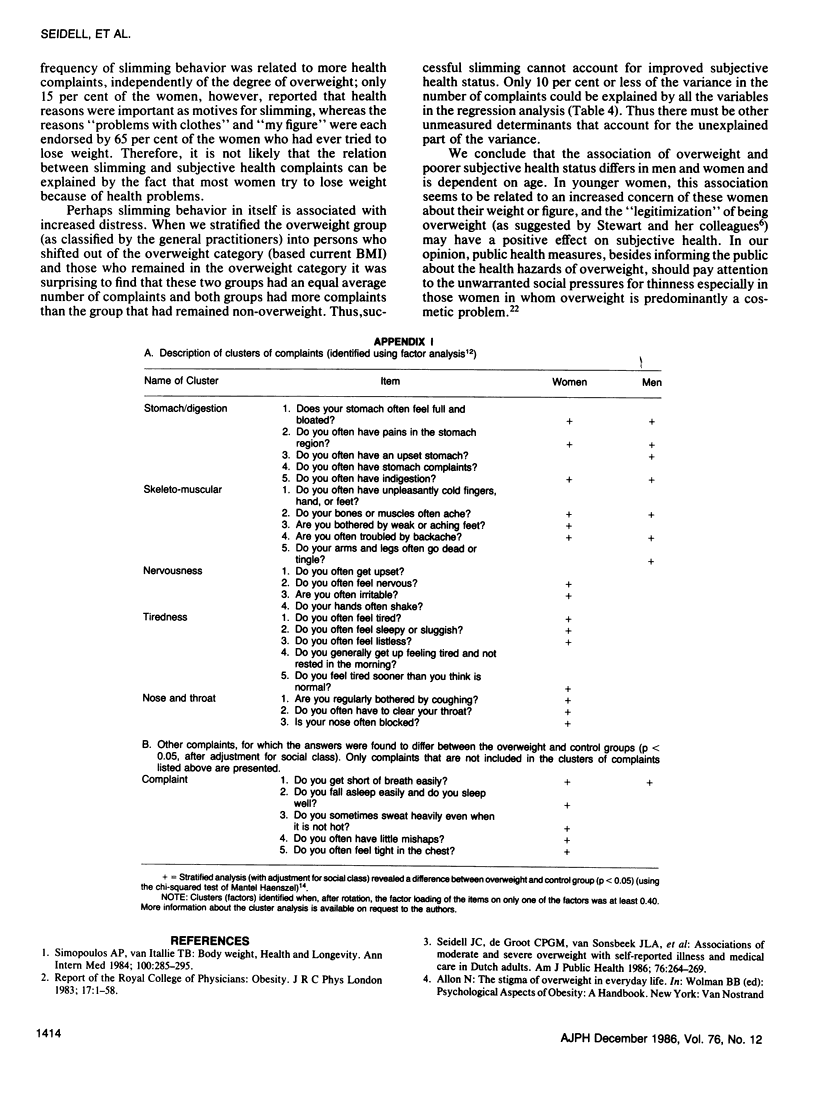
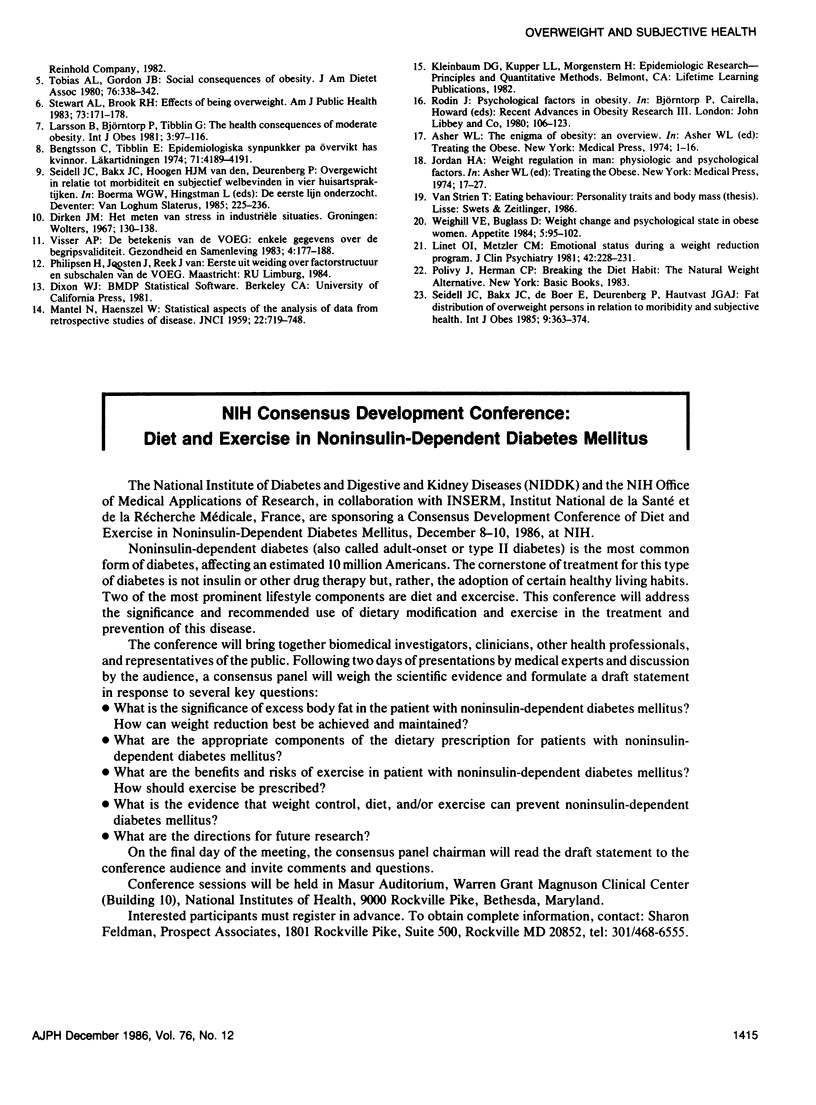
Selected References
These references are in PubMed. This may not be the complete list of references from this article.
- Bengtsson C., Tibblin E. Epidemiologiska synpunkter på övervikt hos kvinnor. Lakartidningen. 1974 Oct 23;71(43):4189–4191. [PubMed] [Google Scholar]
- Larsson B., Björntorp P., Tibblin G. The health consequences of moderate obesity. Int J Obes. 1981;5(2):97–116. [PubMed] [Google Scholar]
- Linet O. I., Metzler C. M. Emotional status during weight reduction program. J Clin Psychiatry. 1981 Jun;42(6):228–232. [PubMed] [Google Scholar]
- MANTEL N., HAENSZEL W. Statistical aspects of the analysis of data from retrospective studies of disease. J Natl Cancer Inst. 1959 Apr;22(4):719–748. [PubMed] [Google Scholar]
- Seidell J. C., Bakx J. C., De Boer E., Deurenberg P., Hautvast J. G. Fat distribution of overweight persons in relation to morbidity and subjective health. Int J Obes. 1985;9(5):363–374. [PubMed] [Google Scholar]
- Seidell J. C., de Groot L. C., van Sonsbeek J. L., Deurenberg P., Hautvast J. G. Associations of moderate and severe overweight with self-reported illness and medical care in Dutch adults. Am J Public Health. 1986 Mar;76(3):264–269. doi: 10.2105/ajph.76.3.264. [DOI] [PMC free article] [PubMed] [Google Scholar]
- Simopoulos A. P., Van Itallie T. B. Body weight, health, and longevity. Ann Intern Med. 1984 Feb;100(2):285–295. doi: 10.7326/0003-4819-100-2-285. [DOI] [PubMed] [Google Scholar]
- Stewart A. L., Brook R. H. Effects of being overweight. Am J Public Health. 1983 Feb;73(2):171–178. doi: 10.2105/ajph.73.2.171. [DOI] [PMC free article] [PubMed] [Google Scholar]
- Tobias A. L., Gordon J. B. Social consequences of obesity. J Am Diet Assoc. 1980 Apr;76(4):338–342. [PubMed] [Google Scholar]
- Weighill V. E., Buglass D. Weight change and psychological state in obese women. Appetite. 1984 Jun;5(2):95–102. doi: 10.1016/s0195-6663(84)80028-8. [DOI] [PubMed] [Google Scholar]


